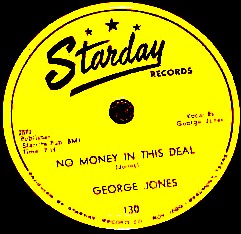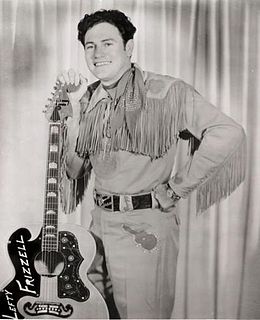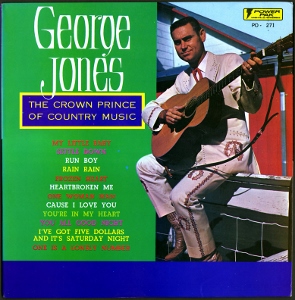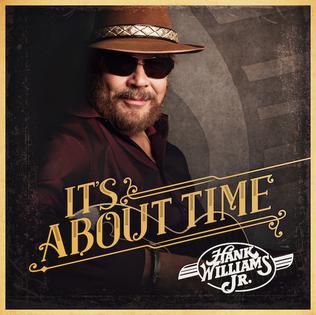Recording and background
Jones' first recording session wrapped up 5 songs (2 unissued). The third song cut was a rockabilly slide titled "Play It Cool, Man." Like the other songs recorded during the session, the song was greatly influenced by his idols. "No Money in This Deal," "For Sale or For Lease," and "If You Were Mine" displayed a very evident Lefty Frizzell influence. However, Play It Cool, Man displayed a clear Hank Williams influence (Jones' favorite singer). From Jones' bluesy vocal delivery to the steel guitar break, which is reminiscent of Hank's "Honky Tonk Blues," the song's swing and swagger also points unerringly towards rockabilly. Nick Tosches notes in his 1994 Texas Monthly article "The Devil in George Jones", "Though Jones would never acknowledge it, the rockabilly impulse of the early fifties had affected his sound as much as the lingering voices of Acuff and Williams. 'Play It Cool, Man, Play It Cool,' recorded by Jones in 1954, several months before Elvis's debut, had bordered on pure rockabilly..."

"No Money in This Deal" is the title of the debut country music song released by George Jones on February 18, 1954 with Starday Records. The song became the first recording to be of a little over 900 that Jones would record during his 61-year career.

William Orville Frizzell, known as Lefty Frizzell, was an American country music singer-songwriter and honky-tonk singer. A vocalist who set the style of singing "the country way" for the generations that followed, Frizzell became one of the most successful and influential artists of country music throughout his career. He gained prominence in 1950 after two major hits, and throughout the decade was a very popular country performer. He remains the only country singer to have four songs that reached No. 1 on the Billboard country chart in one year (1951). He smoothed out the rough edges of a honky tonk song by sounding out syllables longer and singing longer. Because of this, his music became much more mainstream without losing its honky-tonk attitude and persona.

Hiram King "Hank" Williams was an American singer-songwriter and musician. Regarded as one of the most significant and influential American singers and songwriters of the 20th century, Williams recorded 35 singles that reached the Top 10 of the Billboard Country & Western Best Sellers chart, including 11 that ranked number one.
The b-side includes one of the two tracks recorded from his first collaboration recorded in April and June of that year in Houston: "Wrong About You" with Sonny Burns."

Houston is the most populous city in the U.S. state of Texas, fourth most populous city in the United States, as well as the sixth most populous in North America, with an estimated 2018 population of 2,328,419. Located in Southeast Texas near Galveston Bay and the Gulf of Mexico, it is the seat of Harris County and the principal city of the Greater Houston metropolitan area, which is the fifth most populous metropolitan statistical area in the United States and the second most populous in Texas after the Dallas-Fort Worth metroplex, with a population of 6,997,384 in 2018.
This page is based on this
Wikipedia article Text is available under the
CC BY-SA 4.0 license; additional terms may apply.
Images, videos and audio are available under their respective licenses.

The Drifting Cowboys were the backing group for American country legend and singer-songwriter Hank Williams. The band went through several lineups during Williams' career. The original lineup was formed in 1937, changing musicians from show to show until Williams signed with Sterling Records.
"Half as Much" is an American pop standard written by Curley Williams in 1951. It was first recorded by country music singer Hank Williams in 1952 and reached number two on the Billboard Country Singles chart. The same year, Rosemary Clooney recorded a hit version for Top 40 markets; Alma Cogan recorded another version in the United Kingdom. Since then the song has been recorded by a number of artists including Patsy Cline (1962), Ray Charles (1962), Eddy Arnold (1964), Sharon Redd (1967), Petula Clark (1974), Emmylou Harris (1992), Cake (1998), and Van Morrison (2006).

Risin' Outlaw is the debut solo album by Hank Williams III, released on September 7, 1999. The album showcases a neotraditional country sound.

The Almeria Club Recordings is an album by American country music singer and songwriter Hank Williams, Jr. This album was released on January 8, 2002 on the Curb Records label. He recorded most of the songs at "The Almeria Club", a club that his father, Hank Williams, recorded several songs himself. Kid Rock as well as Uncle Kracker appear on the song "The 'F' Word" giving background vocals

George Jones Salutes Hank Williams is the 1960 country music studio album released in May 1960 by George Jones. The album was the ninth studio LP release, and was recorded in one session. The album has been reissued multiple times since its release, including the tracks being reused on many compilations.

Grand Ole Opry's New Star is the debut studio album released by George Jones on October 1, 1956. with Starday Records. Produced by Jones' manager Pappy Daily, the album was recorded during early sessions in 1954, throughout 1955, and other sessions in 1956. It is also the first album to be released on the Starday label, a label only four years old.
"Why Don't You Love Me" is a song by American singer and guitarist Hank Williams. The song reached number one on the U.S. Country & Western chart. It was released as a single in 1950 with the B-side "A House Without Love".

Jazz From the Hills is an album by American guitarist Chet Atkins and The Country All-Stars. It is a reissue of sessions from 1952-1956.
Blue & Lonesome is an album by American country music artist George Jones released in 1964 on the Mercury Records label.
"I'm a Long Gone Daddy" is a country song written and recorded by Hank Williams. It was released in 1947 on MGM Records and became his second top ten hit.
"Howlin' at the Moon" is a song written and recorded by Hank Williams. It rose to #3 on the country singles chart in 1951.
"Wedding Bells" is a song written by Claude Boone and recorded by Hank Williams on MGM Records. It peaked at No. 2 on the country singles chart in 1949.
"Settin' the Woods on Fire" is the name of a single and the A-side song by Hank Williams released in 1952. The song reached #2 on U.S. Billboard Hot Country Singles.
There'll Be No Teardrops Tonight is a song written by Hank Williams and released on MGM Records as the B-side to "Mind Your Own Business" in July 1949.
"(Last Night) I Heard You Crying in Your Sleep" is a song written and recorded by Hank Williams on MGM Records. It was released as the B-side of "Move It on Over" in 1947.
"You All Goodnight" is a song by George Jones. Jones wrote the song with Marge Broadway and it was released as his third single on Starday Records, released on September 25, 1954.

The Crown Prince of Country Music is the 1960 country music studio album released by Starday Records of previously unissued recordings released in January 1960. It was Jones' eighth studio LP release. The album's original release, like the reissue edition, did not chart.
"You're in My Heart" is a song written and recorded by country music artist George Jones. It appeared as the B-side to his first single on Starday Records, "No Money in This Deal."

It's About Time is a studio album by Hank Williams Jr. released by Nash Icon Records on January 15, 2016. The album includes re-recordings of previously released material and new songs.













